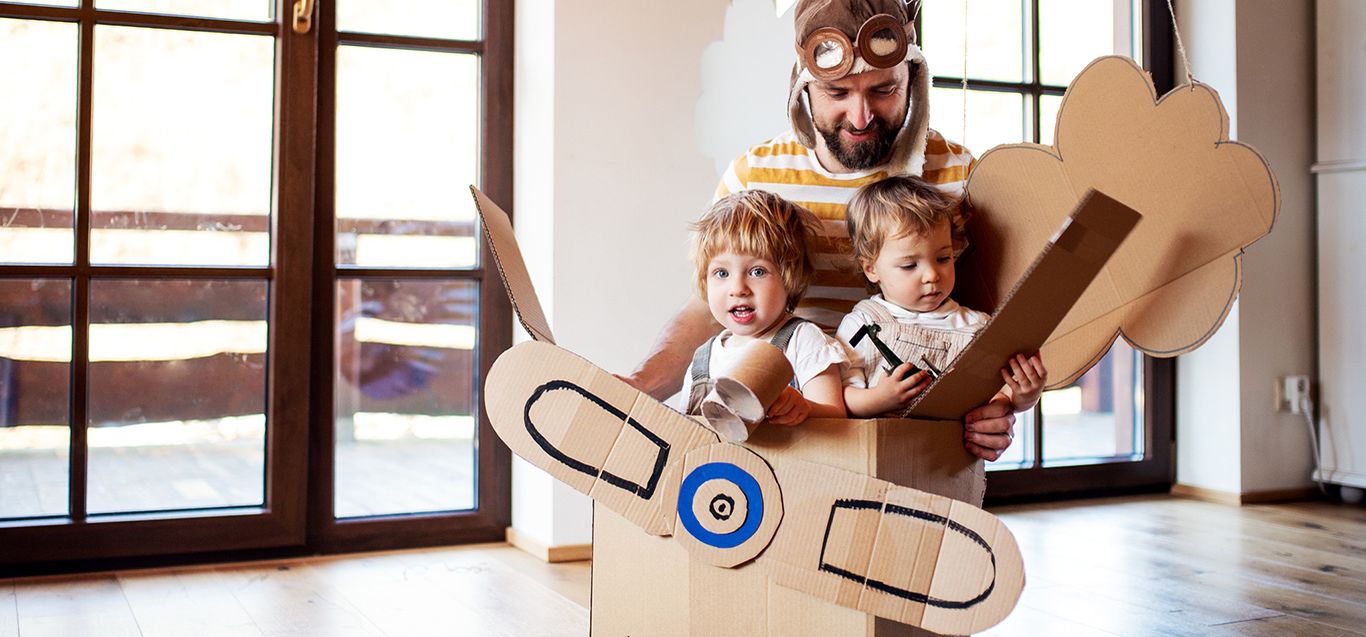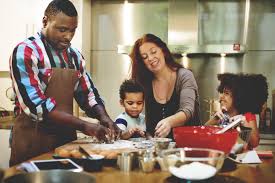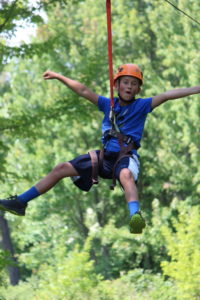On April 20, after consultation with health service professionals and prayer by our board and leadership team, Wildwood Ranch announced to our parents, families and staff members that we were suspending summer operations due to the COVID-19 pandemic. When pressed for details, we have simply answered that one of our main priorities has always been the health and safety of our camp community. While this is true, there were many heart-wrenching discussions and even arguments as we traveled towards the ultimate decision.
Earlier this week, one of our colleagues wrote a blog post to the wider camp community that describes our journey towards this decision. She agreed that we could share her thoughts on our site. Thanks Sarah!
Unless we can ensure that each of us is safe at camp, we all have to stay home.
A few weeks ago, there was a particularly contentious post in the Summer Camp Professionals Facebook Group questioning the viability of virtual camp programming. With 134 comments, no one could seem to agree. A group member, D. Marie Render, astutely wrote: “I believe the issue is that there are so many types of camps represented in this group it’s like we are comparing apples, to oranges, to papayas, to kiwis, to hot dogs.”
And this is why no one, including the ACA, can tell our individual camps exactly what to do.
As wonderful as it would be, and as much as I am sure they would like to, they could not possibly create a “silver bullet” solution for you to be able to run your camp that could also apply to every other camp in the country. There are obviously major fundamental differences between day camps and overnight camps. But in addition to that—from geography to facility to camper population to the availability of PPE—we are all dealing with extremely different scenarios. No one could possibly come up with a “one size fits all” way forward.
You’ll feel a lot better and be able to think more clearly when you stop waiting for it.
When I go on camp websites, many have Covid-19 messages. Right now, several camps say “We are waiting until May 15th when we will have additional guidance from the American Camp Association and the CDC, and we will make a decision at that time.”
I suspect that we are not going to have much more information on May 15th than we do right now or than we had even a few weeks ago. The ACA has created and compiled tons of resources toward providing us with best practices, interpreting information, and communicating these resources to our community. However, we are all too different to get an exact answer from them—or from almost anyone else.
Unless there is some clear legislative or executive decision in your area (at the local, state or federal level) that says your camp cannot run, you are going to have to make the decision yourself. YOU are going to have to figure out if your camp can safely host children and staff this summer.
As different as our camps are, I think we can simplify the discussion of whether to hold camp this summer and, if so, how to do it. There have been two basic approaches when thinking about this question. The first way is to create a “bubble”, where a seal of sorts is formed around your camp community. In other words, this method strives to make camp a Covid-free zone. The second way is to “assume everyone is contagious,” which puts new protocols in place that assume every person present has the virus already and could spread it. These protocols work to block or impede the spread of a virus, such as extra sanitation, face masks or social distancing.
Many camps attempting to open are thinking of using both of these approaches. I no longer run a camp of my own, but if I were to test the viability of these approaches for my home camp (a rustic, overnight, non-profit camp with about 275 people on site at any given time), I’ve written out what I would ask myself about these approaches and how I would answer. This post is not meant to be proscriptive; my goal is to share with you my thought process in the hopes that you can ask yourself some of the same questions for your camp and find some guiding answers.
APPROACH 1: TESTING THE BUBBLE
Can we create a Coronavirus free “bubble” at our camp? Can we make sure that no one coming onto the camp site, even for a short period of time, has Coronavirus?
For me, the answer is no. Until there is accessible, accurate and rapid testing (which there is not), we cannot create a Coronavirus-free bubble. Temperature and symptom checks are not enough for me, since individuals can have the Coronavirus and be asymptomatic but contagious.
Even if we gain the testing equipment to create a bubble, can we make sure that no one comes onto our site without being tested? What about that staff member who sneaks off site to meet up with their boyfriend or girlfriend (who does not work at camp) in the middle of the night? What about the person who delivers our foodservice order? The mail carrier? The boaters who inevitably anchor off of our camp’s shore and wander on to camp during rest hour—who we find casually using our restrooms? Even if we secure our camp’s perimeter, we could be vulnerable: A few years ago, a hot air balloon with several passengers had an emergency landing on the middle of our soccer field. Weird stuff happens at camp—I don’t think we could truly seal our site off to the outside world.
If we are confident that we can create a strong “bubble”, are we confident that we can respond if a bubble is “popped”?
To me, the answer is to this is also no. Let’s say we have accurate, rapid testing equipment at our overnight camp, and we test every person every morning. But what do we do when someone’s test comes up positive?
Do we have the facility space to quarantine that person and the others in their bunk, including staff members? What if we have more than one positive test? Can infected individuals easily be evacuated? But to whom are they released? Certainly it is not safe to return them to others that they could infect, but to whom could we release them other than their parents? If we do, how do they safely get to their home to recover, without infecting the person who drives them?
And, how would we contact trace within camp? How many people has this person potentially been in contact with? Which bathroom stalls have they used, and who else has used those bathroom stalls? What do we do with the individuals who could have been exposed? These questions would be impossible for me to answer. With a single “positive” test on camp, I’d have to ring the bell 100 times—our weird emergency signal that means we have to evacuate the camp.
APPROACH 2: TREATING EVERYONE AS CONTAGIOUS
Do we have the capacity to identify and meet all requirements for increased sanitation and social distancing?
To me, the answer is no. First off, there are no official requirements from the federal level for overnight camp programs. Any requirement that I would be instituting for my overnight camp program is something that I would adapt from day camp or school guidelines. Ultimately, I am unqualified to create these guidelines myself (nor is anyone on my team qualified to do so at a level that would appropriately and scientifically minimize all possible risk).
However, If I were making a list of requirements as a thought exercise, I imagine that some of these requirements would be easy for us to meet (and, in fact, are things we should already be doing), like sanitizing some of our equipment after each use and promoting healthy hygiene/hand washing. With some capital investment and strategic ordering, I could likely get the supplies I needed to fulfill many of these.
Other likely requirements would be very difficult. How would I get all of my campers at overnight camp to wear masks? When would it be OK to not wear the mask, and for how long—what about while eating?Lifeguarding? Sleeping? Can I keep my campers 6 feet or more apart from each other? Maybe—but this would cancel almost every game that we play at our camp and mean we’d be running at half capacity. Meal service would look totally different and would perhaps be impossible if we could not eat family or buffet style in the dining hall. Keeping people away from each other might be OK, but how would all of the people on our site share a limited number of toilets, sinks and showers? Do I need to hire a bathroom attendant to sanitize each facility after each use? I am not confident that I would have the capacity or resources to enforce proper protocols, nor do I have clear scientific guidance on which protocols are needed.
Would operating camp in this fashion be true to the mission, vision and values of my camp?
As Jason Smith, the executive director of YMCA Camp Kitaki, wrote as he made the decision to suspend his camp’s programming for Summer 2020: “After spending the last two months analyzing the influx of information, talking to experts, and making and modifying tons of different plans, one thing has become clear. Any program we offer at Kitaki this summer would not resemble the one that our campers signed up for.”
This is true for my experience, too. We could host children at a camp like ours for the sole purpose of providing stable childcare to children who have no other option. But to keep them entirely safe, we’d have to keep everyone entirely separated. If a young camper skinned his or her knee, a counselor could not get close enough to help them walk to the health center. High fives turn dangerous; a sneeze could incite a lockdown; everyone would be met with suspicion instead of unequivocal positive regard. It would put the whole point of camp into question. I am not OK with that.
MY FINAL OPINION
I am not saying we need to live in fear forever. I am saying we need to be patient. This too shall pass—but we need to wait for science and medicine to catch up to a virus that got a head start in this race.
Even before the Coronavirus, if I had a crystal ball (still waiting on that) and I knew that one person was going to die of any preventable cause because of my decision to run camp this summer, I would not run camp. A summer at camp is not worth even one person’s life—even if that person is “old,” even if that person has some sort of preexisting condition, even if that person (or their parents) signs a waiver. It is not right.
It is my opinion that unless there are significant advancements in our ability to stop the virus before it spreads (or to find an easy, accessible and effective treatment), it would not be safe for us to run camp like mine. As my childhood camp’s slogan went: Each for all, all for each. Unless we can ensure that each of us is safe at camp, we all have to stay home.
This is hard. Unimaginable, really. For many of us, heartbreaking even as adults. I hate to imagine what my reaction would have been as a camper to learn that my camp was cancelled for the season—and it’s even worse to imagine what my reaction would have been as a staff member. Suspending camp for the season is a tremendous loss for the people who have been longing for those few weeks in the summer where they can truly be themselves. Where they can reunite with their best friends, where they can laugh uncontrollably, where they can use their imaginations, where they can belong.
I get it, and I hate that this is happening. But in the end, suspending camp for the summer is actually a heroic act. It’s a heroic act by the kids, the staff, and the leadership—who all need to understand that their sacrifice is meaningful. It means breaking your own heart to potentially save someone else’s life. It means staying true to the values of camp; it means protecting each other. It’s time for us to put the resilience, respect, love and strength that we’ve been teaching at camp all of these years to the test. We will overcome the pandemic, and we will be back—together—and better than ever—in 2021.
AN EXTRA NOTE FROM ME
We all have our biases. Maybe I am extra cautious about Covid-19 because it almost took a member of my family. Despite following social distancing practices and staying at home, my uncle was diagnosed with Coronavirus in March. He was especially susceptible to the virus because he received a double lung transplant in 2010 and has a compromised immune system because of it.
After almost 2 weeks in the hospital including almost a full week on a ventilator, he made it. It was terrifying and fast and everything that we feared it would be—except he is one tough dude who had wonderful doctors and nurses at the University of Michigan Hospital and he miraculously didn’t let it take him down. If you want to read more about my awesome Uncle Jamie, check out this article about him in our hometown newspaper. I wouldn’t wish that experience upon any other family, and perhaps that is why it is so important to me that camps suspend operations until they can be 100% sure they aren’t spreading the virus.
About

Sarah Kurtz McKinnon graduated cum laude from the Medill School of Journalism at Northwestern University in 2008, earning her degree in political science and journalism. Although she had a passion for writing, she had another passion, and that was changing lives through the power of summer camp. In 2009, she earned the opportunity to become one of the youngest YMCA camp executives in the country, taking the helm of Ann Arbor YMCA Camp Al-Gon-Quian at the age of 23. Sarah served as the director of Camp AGQ for nearly six years. During that time the camp saw incredible growth with a 40 percent increase in positive annual net for the program and nearly $1 million in capital construction improvements. Her dynamic and creative leadership approach took an already great camp to another level of excellence, receiving recognition at the national level for the camp’s success.




